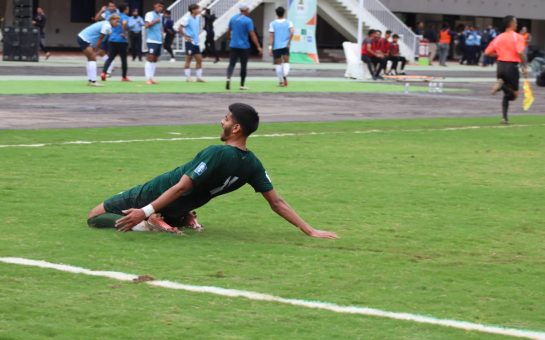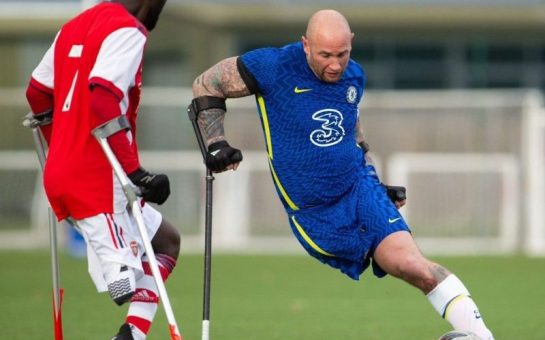John Terry’s four-match ban for racuial abuse leaves questions hanging over the FA’s authority.

Chelsea captain John Terry received a four-match ban and fined £220,000 yesterday after the FA found him guilty for racially abusing Queens Park Rangers’ defender Anton Ferdinand.
Terry was accused of using abusive language in reference to colour and/or race towards Ferdinand during a hotly-contested London derby at Loftus Road on October 23.
Chelsea’s most successful captain, cleared by Westminster Magistrates’ Court of racially abusing Ferdinand in July, has expressed his disappointment with the FA verdict.
The ex-England skipper has called for detailed written reasons for the decision and will consider them carefully before deciding to lodge an appeal.
The ban and fine will not come into effect until the centre-half has made his judgment.
Terry admitted using the word ‘black’ and swearing at Ferdinand but insisted he had only been repeating words he thought the Rangers defender had accused him of saying.
The legacy of this high-profile saga will live long in the memory and rightly raises criticism over the severity of FA punishments.
Unfortunately we don’t have to look back far for another example of racism in the Premier league with Liverpool’s Luis Suarez racially abusing Patrice Evra at Anfield last season.
The FA issued the Uruguayan with an eight-match ban for an offence that more than mimics the Terry episode, yet it was deemed punishable by an additional four matches.
Sir Alex Ferguson today commented on Terry’s suspension: “He may consider that is quite lenient considering Luis Suarez got eight. It is time to move on and so should the game.”
Distinguishing between a ban for racial abuse and one for a bad challenge or red card is evidently a tricky business for any fan.
Liverpool’s Jonjo Shelvey, sent off last weekend for a poor challenge on defender Jonny Evans, will now serve the standard three-match ban, this comically is only one game less than Terry’s suspension for racial abuse.
Joey Barton, no stranger to controversy and FA discipline following his recent 12-match ban for violent conduct, tweeted: “By the FA’s perverse reckoning, I’d have got less of a ban for racially abusing the Man City players than tickling them as I did.”
The farcical four-match ban looks feeble when compared to memorable punishments of FA past.
Fans will remember Manchester United’s Eric Cantona receiving a four-month ban after assaulting a fan who allegedly insulted the French genius at Selhurst Park in 1995.
In 1998 Sheffield Wednesday’s Italian star, Paolo Dicanio, was dispatched a lengthy 11-match ban for pushing referee Paul Alcock after being red carded, resulting in the ref comically stumbling backwards to the ground.
The FA’s reluctance to grow a backbone and make examples of players charged with racism with more severe punishments only reflects their inability to kick prejudice out of football.
Chelsea Football Club with their no-tolerance policy towards racism has a responsibility to send a strong message to the footballing world when deciding what action to take with their shamed player.
Follow us @SW_Londoner




